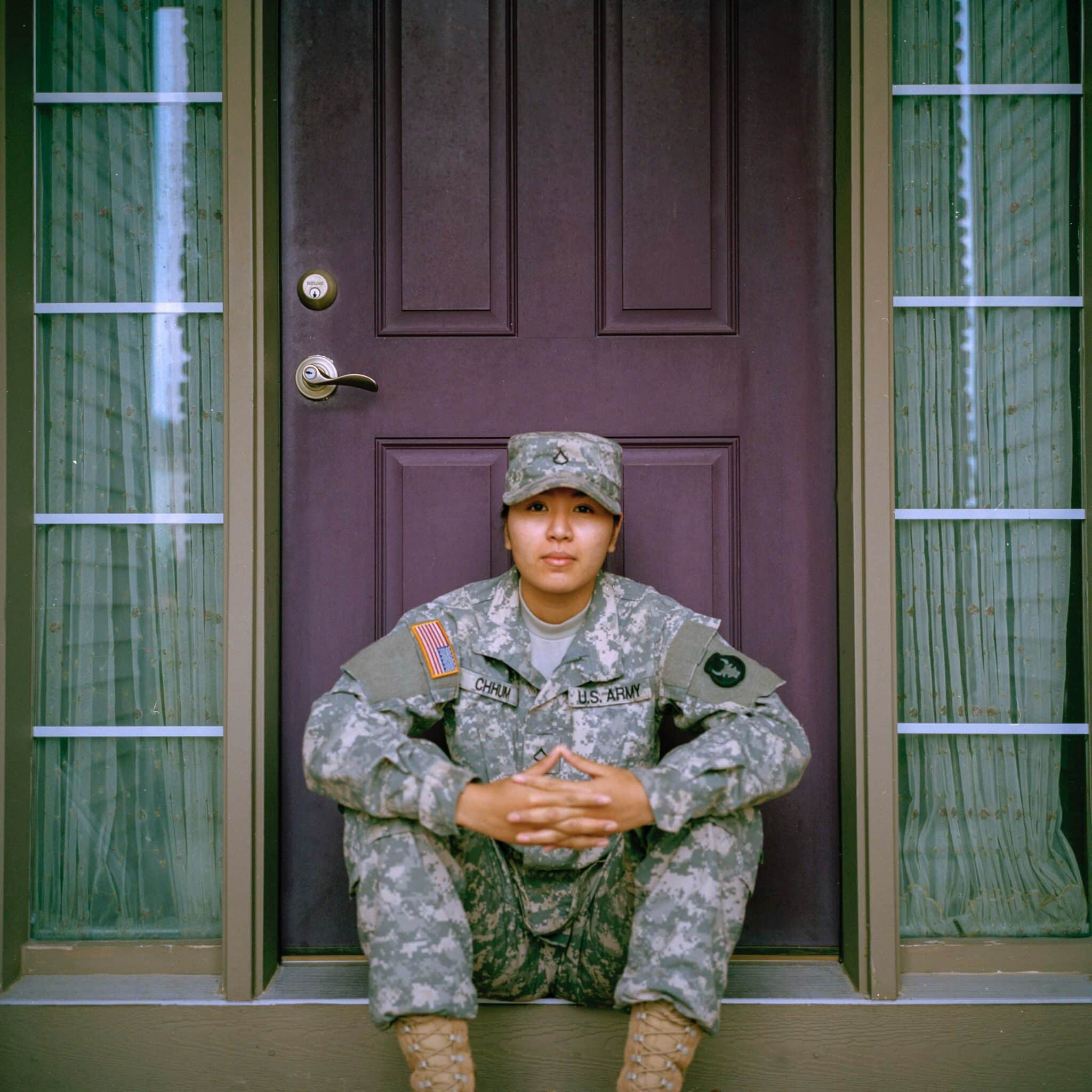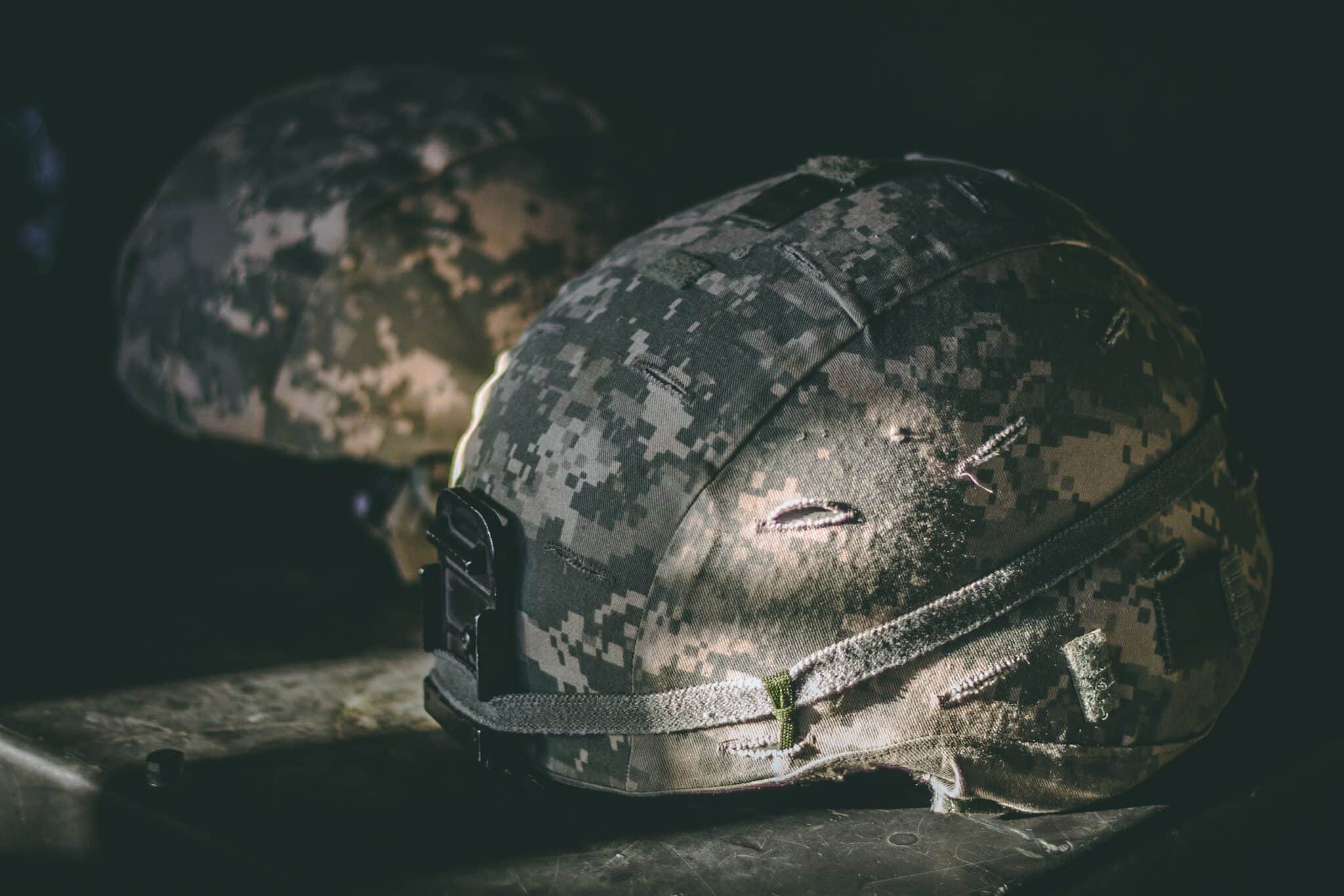
Your Health Unlocked Episodes
042: Pregnant, and Nowhere to Go – Serving Young Mothers with Angels Protection Inc
April 3, 2024
---

Deep Dive Articles
Publication Date: November 10, 2023
By: Kristen Batstone, NWHN Policy Manager

The Problem | A Brief History of Women in the Military |
Health Care Disparities Faced by Servicewomen and Women Veterans | Policy Suggestions
Servicewomen and women veterans were promised comprehensive health care, and the U.S. government has yet to deliver on this promise. There are currently several bills circulating in Congress that seek to address these critical gaps in care, but this isn’t the first time some of these bills have been introduced and they have always fallen short of passing these bills for one reason or another. Furthermore, some lawmakers have introduced legislation that would repeal recent actions taken by the Department of Defense and the Department of Veterans’ Affairs to expand access to reproductive health care. As the year wears on, efforts to expand access to health care for servicewomen and women veterans are being held up by ideological debates over abortion.

Since 1948, women have been permitted to serve in the military, but enrollment didn’t really see a spike until the government ended conscription (or the draft) in 1976. Beginning in the 1990s, there were efforts to increase women’s involvement in the military. Although these efforts were largely successful, it wasn’t until the Obama administration that all combat positions were available to women. This slow crawl towards equal opportunity and representation for women in the military can partly explain why servicewomen and veterans continue to see gaps in care. The system was not created to cater to women, and it has been slow to change over the years.
Recent research indicates that there is now a steadily growing presence of servicewomen in the military and reserves. As of 2021, women made up 17.3% of the active-duty force and 21.4% of the National Guard and reserves. Enrollment for women in the military is up by 2% and 4% for the reserves since 2005. Women are also the fastest growing demographic in the veteran population. But culture, as always, is harder to change than the numbers. Despite growing representation for women as servicemembers, men are still overrepresented in the military, and servicemembers of all genders report that the military is often a hotbed for discrimination, harassment, and abuse for gender and sexual minorities.
The Affordable Care Act (ACA) expanded access to all FDA-approved methods of contraception without co-pays. The ACA was a huge win for women’s health, but it did not extend to Tricare-the military’s health care program. Service members and their loved ones still face out of pocket costs for contraception. The cost of contraceptive pills can range up to $50 per month depending on insurance coverage, and other methods of contraception like the NuvaRing can cost up to $1,000 per year. Equitable access to contraception not only improves quality of life and reduces unintended pregnancies, but family planning is also important for military readiness.
There is, however, a bill in the works that could fix this. Senator Shaheen (D-NH) and Representative Jacobs (D-CA) have reintroduced the Access to Contraception for Servicemembers and Dependents Act. This bill would eliminate cost-sharing for non-active duty servicemembers and eliminate cost-sharing for the dependents of servicemembers who may obtain birth control outside of a military medical treatment facility (MTF). This legislative fix has been in the works for the last 11 years, and it has received bicameral and bipartisan support. Despite overwhelming consensus that this inequity needs to be addressed, this bill has not been enacted into law. Legislators and stakeholders alike hope that this year will be different but attacks against abortion have largely dominated conversations about servicemembers’ reproductive health.

In the military, abortion care and coverage for abortion services are largely banned. The military’s stance has remained unchanged since President Biden took office, but the Department of Defense and the Department of Veterans’ Affairs have made certain concessions to increase access to reproductive health care following the Dobbs decision. For instance, the DoD has enacted a new travel policy that would allow paid time off for service members who need to travel out-of-state for an abortion. Thousands of women are currently stationed in states that have enacted near total or partial bans on abortion, and traveling to a different state may be their only chance at accessing abortion care.
The DoD also implemented a new policy that expanded the window for servicewomen to report a pregnancy to their commander up to 20 weeks. Before this policy change service members had to report their pregnancy to their commanding officer within two weeks of gestation or immediately after they received a pregnancy test on base. As for Veterans, the VA will now provide abortion counseling and abortion services in the event of rape or life-threatening conditions.
Anti-abortion advocates are pushing back against these recent concessions – no matter the cost. They say the DoD and VA policies are illegal, and they are demanding that the Biden Administration reverse these actions. Some anti-abortion advocates like Sen. Tommy Tuberville (R-AL) are going as far as interfering with critical national security nominations. Currently, there are more than 300 posts in the military that remain unfilled. As a result of Tuberville’s politically-motivated obstruction, Gen. Eric Smith has been tasked with managing two top military positions at once- Marine Corps commandant and service’s assistant commandant. The latter position has been vacant since July 2023. Last Friday, Smith sustained a heart attack. Following Smith’s heart attack, ranking Member Mitch McConnell (R-KY) said that these obstructionist tactics was a “bad idea”.
Beyond these happenings in the senate, House republicans have attached anti-abortion riders to every single appropriation bill being considered this year. The defense appropriation bill includes a rider that reverses the DoDs new travel policy, and the MilCon-VA bill repeals expanded abortion access for servicewomen and their families. These bills also include harmful provisions that would restrict or ban access to gender-affirming care for transgender service members. The NWHN believes that not only is it morally repugnant to deny a group of people life-saving care, but these provisions will affect military recruitment and retention rates as service members will be forced to choose between getting the care they need and serving our country.

Last year, Congress passed the Protecting Moms Who Served Act. So far, it is the first and only bill part of the larger Black Maternal Health Momnibus package that has been signed into law. This bill codifies and strengthens the Department of Veterans Affairs maternity care coordination, and commissions the first-ever study on the maternal health crisis among women Veterans. Increased support and research specific to women veterans is important because women veterans are often forgotten or excluded from conversations about the maternal health crisis in the United States. Further, we cannot credibly talk about U.S. maternal health without acknowledging the disparate maternal health outcomes experienced by Black and indigenous women. The maternal health crisis in the United States is truly a Black maternal health crisis as Black women are 3-4 times more likely to die in childbirth than their white counterparts. This is relevant to women veterans because a higher percentage of women veterans are Black (19%), relative to the non-veteran population.
The women veteran population also experiences PTSD at a rate much higher than both male veterans and the non-veteran population. Research indicates that PTSD during pregnancy is associated with a 35% increased risk of preterm birth, 40% increased risk of gestational diabetes, and 30% increased risk of preeclampsia. It has also been reported that 28% of all pregnant veterans experience depression which may increase their risk for postpartum depression. Concerns surrounding maternal mental health and pregnancy care in general are further complicated by structural barriers to care. A recent survey by the VA Women’s Health Research Network found that nearly one-third of all pregnant Veterans were unable to access VA-covered prenatal care as soon as they would have liked. Issues with paperwork and procedures are a common complaint among all Veterans who struggle to access VA-provided care. The same survey recommended that there needs to be greater collaboration between the VA and community providers.
There are additional barriers to care for service members who struggle with infertility. As it stands, Tricare does not cover assisted-reproductive procedures like in vitro fertilization (I.V.F.) unless a loss in reproductive ability is a direct result of a service-related injury. So, service members are expected to pay out of pocket for these services if they struggle with fertility for any number of reasons not associated with service. And challenges with fertility are not uncommon. Nearly 20% of all women struggle to become pregnant, and this number is higher for women veterans. In 2021, Blue Star Families conducted a survey of active-duty service members and found that 57% of women experienced difficulties with fertility. To make matters worse- assisted reproductive procedures are expensive. The cost I.V.F alone may range from $10,000-$20,000. However, Senators Sen. Tammy Duckworth (D-IL) and Sen. Patty Murray (D-WA) are working to introduce a bill that would address these issues related to coverage. This issue is personal for Sen. Duckworth who is an Iraq War veteran and double amputee who used in vitro fertilization to become pregnant.

The Network has called upon Congress to introduce legislation that would direct the Department of Defense to commission a study on the effects of menopause on servicewomen. To date the two largest studies on menopause-including the Women’s Health Initiative study-failed to look specifically at our military and veteran population. Although the VA provides some resources to women looking to learn more about menopause, we know that health care providers, in general, are largely untrained when it comes to menopause. For many women, menopause is a major life event. It is not a disease, but it is still shrouded in shame and stigma. As previously mentioned, a significant portion of our veteran population is comprised of Black women. Research indicates Black women experience more severe vasomotor symptoms during menopause. Additionally, we know that women who experience more severe menopause symptoms are more likely to leave the workplace prematurely. Increasing support for menopausal servicewomen may be an important element for retaining women who serve in the military or reserves. Regardless, it is important that we understand how menopause affects the women who serve or previously served our country so that we can provide relevant resources and support to improve their experience with menopause.

